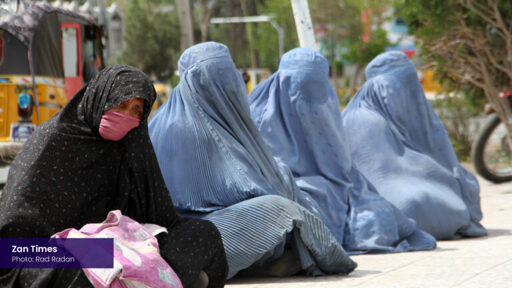Over the past few months, multiple women say they have been targeted by Taliban officials and detained under anti-begging laws passed this year. While in prison, they claim they were subjected to sexual abuse, torture and forced labour and witnessed children being beaten and abused.
All the women say they were forced to beg on the streets to feed their children after being unable to find paid employment. Since the Taliban retook power, women have been barred from most forms of paid work.
[…]
In May, the Taliban passed a new law prohibiting “healthy people” from begging on the streets if they had enough money on them to pay for one day’s food. A commission was established to gather beggars in Kabul and across other provinces to register and categorise them as “professional”, “destitute” or “organised”, which involves taking their biometric data and fingerprints. According to Taliban officials, more than 50,000 beggars have already been “rounded up” in Kabul alone.
[…]
Along with multiple reports of rape and torture of women arrested under anti-begging laws, former detainees also say they witnessed the abuse of young children in prison, with one woman alleging that two children were beaten to death while she was in detention.
“No one dared speak,” [a woman who has been imprisoned and is now released] says. “If we spoke up, they’d beat us and call us shameless. Watching those children die before my eyes is something I’ll never forget.”
The death of detainees rounded up under anti-begging laws is factored into the wording of the Taliban’s new law, in which Article 25 states: “If a beggar dies while in custody and has no relatives or if the family refuses to collect the body, the municipal officials will handle the burial.”
[…]



It takes all sorts of horrible actions from all sorts of horrible people in many parts of the world, and the place itself, for these things to become possible. The guns they possess, the technical tools for population registration they have…